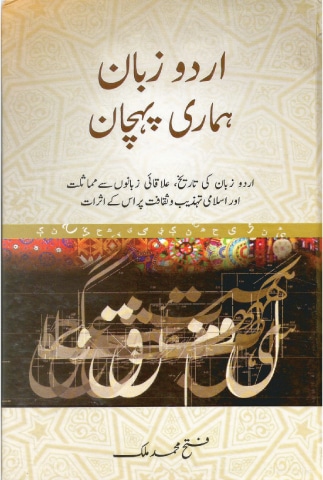
“A long time ago, the then prime minister of Pakistan was on an official visit to Germany. He was speaking in English to a gathering of German industrialists and businessmen. The gentleman sitting next to me asked in English ‘In which language is he speaking?’ I ignored the question as if I had not heard anything. When he repeated his question, I looked at his face and realised that he was really not able to understand even a single word of what our prime minister was supposedly saying in English,” writes Prof Fateh Muhammad Malik in his new book Urdu zaban hamari pehchan.
Then he goes on to add: “The problem is our ruling classes erroneously believe that they have a command of the English language. As a result when they address in English the listeners immediately understand that the poor soul does not know English.” Prof sahib reminds us of another occasion when Hamid Karzai, the then Afghan president, came to Pakistan on his first official visit and began talking in Urdu. But when our president replied in English, Karzai had to resort to English.
An interesting and eye-opening incident that Prof Malik has narrated in the book goes like this: “About half a century ago, China’s Prime Minister Chou Enlai was addressing a press conference in Rawalpindi in the Chinese language. An interpreter was translating into English every sentence that Chou Enlai spoke. On one occasion, Chou Enlai stopped for a moment and corrected the translator’s mistake in Chinese. The translator instantly apologised, corrected and restated it in English. At the end of the press conference, H. K. Burky, the senior journalist from the Pakistan Times, asked the Chinese prime minister why he did not talk in English when he knew English so well. Chou Enlai made off-the-cuff remark that ‘We are not dumb. We have a language of our own, our national language. Therefore, we take pride in speaking it’ ”.
Yet another incident, tragic and funny at the same time, quoted in the book has more to be ashamed about. It says that about a decade ago during a programme on the national day of France, “the French ambassador made a long and well-articulated speech in Urdu. After which, our minister for law started his speech in Urdu, but just after a few words switched to English. Some of the guests, expressing their annoyance, said that it was a shame that the French ambassador could address in Urdu despite being a foreigner, but our minister did not want to speak Urdu despite knowing the language”.
After narrating the incident, Prof sahib has jokingly commented that “having started speaking in Urdu, the minister must have had a chance to see the American ambassador who was present in the audience. So he began speaking the language of his masters.” This may sound a bit too harsh, but the fact is we Pakistanis suffer from certain complexes when it comes to language and culture and being impressed by the Gora Sahab is one of them, perhaps a hangover from our colonial past.
Many such tragically funny and funnily tragic events are quoted in this new book by Prof Fateh Muhammad Malik. Recently published by Lahore’s Sang-i-Meel Publications, it is a collection of articles on the Urdu language, its history, its importance, its status and the role it plays in Pakistan’s national unity. These articles, published from time to time, clearly reflect the ideology that Prof Malik has been following and teaching all along: Pakistan and Urdu are inseparable and one cannot flourish without the other. As put by him in the preface, “during the Pakistan Movement it was Urdu that united the Muslims living in different areas of the subcontinent and speaking different languages. So in a way, Urdu had become Pakistan’s national language even before Pakistan actually came into being”.
But he laments in the preface as well as in the articles included in the book that the slave mentality of the ruling classes did not grant Urdu the status of national and official language that it deserves and we often come across the tragically ridiculous incidents such as quoted above.
The book has three sections. The first section discusses Urdu’s origin and its relation with other Pakistani languages. An interesting article in the section, titled ‘Punjab ki maadri zaban Urdu hai’, or Punjab’s mother tongue is Urdu, is the one that had stirred a controversy a few years ago. But Malik stood his ground. The other section debates Urdu’s status vis-a-vis Hindi, national language and the complexes that our upper class and rulers suffer from. The last section is very important as it includes some papers that have practical suggestions for adopting Urdu as Pakistan’s official language. Since Malik has served as the chairman of the National Language Authority and he has been at the centre of the debate, he understands the issue well. He has shown here as well the depth and insight he is known for.
Published in Dawn, June 3rd, 2019













































Dear visitor, the comments section is undergoing an overhaul and will return soon.